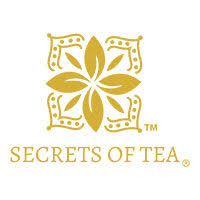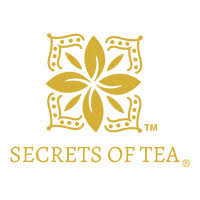Does Age Impact Female Fertility?
As women age, there are various changes that occur within their bodies, including a decline in fertility. The impact of age on female fertility is a topic of great importance and concern for many women. In this article, we will explore how age affects female fertility and discuss the various factors involved.
Table of Contents
- Introduction
- Understanding Female Fertility
- The Effect of Age on Fertility
- Factors Contributing to Age-related Decline in Fertility
- Age and Egg Quality
- Age and Hormonal Changes
- Age and Risk of Pregnancy Complications
- Options for Women Delaying Parenthood
- Assisted Reproductive Technologies (ART)
- Lifestyle Factors and Fertility
- Maintaining Reproductive Health at Every Age
- Seeking Medical Advice
- Conclusion
- FAQs
Introduction
The ability to conceive and carry a pregnancy to full term is influenced by various factors, with age being a significant one. As women age, their fertility naturally declines, and the chances of conceiving decrease. Understanding how age impacts female fertility can help women make informed decisions about family planning and seek appropriate medical advice when necessary.
Understanding Female Fertility
Female fertility refers to the ability to conceive and have a successful pregnancy. It is a complex process that involves the release of a mature egg from the ovaries, fertilization by sperm, and implantation of the fertilized egg in the uterus. Fertility is influenced by a combination of genetic, hormonal, and environmental factors.
The Effect of Age on Fertility
Age plays a crucial role in female fertility. In general, women are most fertile in their 20s and early 30s. After the age of 35, fertility starts to decline gradually, and the decline accelerates after the age of 40. By the age of 45, the chances of conceiving naturally are significantly reduced.
Factors Contributing to Age-related Decline in Fertility
Several factors contribute to the age-related decline in female fertility. One of the primary factors is a decrease in the number and quality of eggs as women age. Women are born with a finite number of eggs, and as they get older, the quantity and quality of eggs diminish. This makes it harder to conceive and increases the risk of chromosomal abnormalities.
Age and Egg Quality
As women age, the quality of their eggs decreases. Older eggs are more likely to have chromosomal abnormalities, which can lead to infertility or pregnancy loss. This is one of the reasons why the risk of certain genetic conditions, such as Down syndrome, increases with maternal age.
Age and Hormonal Changes
Age also affects hormonal balance in women, particularly regarding reproductive hormones. As women approach menopause, there is a decline in the production of estrogen and progesterone, which can disrupt the ovulation process and make it more challenging to conceive.
Age and Risk of Pregnancy Complications
Advanced maternal age is associated with an increased risk of pregnancy complications, such as gestational diabetes, high blood pressure, and preterm birth. These complications can pose risks to both the mother and the baby. It is essential for women to be aware of these risks when considering pregnancy at an older age.
Options for Women Delaying Parenthood
Many women choose to delay starting a family for various reasons, such as pursuing education, career goals, or personal circumstances. However, it's important to note that fertility declines with age, and delaying pregnancy may reduce the chances of conceiving naturally. Women who are considering delaying parenthood should be aware of the potential challenges and explore options like egg freezing to preserve their fertility.
Natural Alternative - Get Pregnant Fertility Tea
Secrets of Tea offers a remarkable fertility tea that has gained popularity among those seeking to conceive. This exceptional blend is meticulously crafted using a combination of carefully selected herbs known for their fertility-enhancing properties. Each sip of this fertility tea nurtures the body, providing essential nutrients and promoting hormonal balance to optimize reproductive health. The tea's gentle yet powerful ingredients work synergistically to support the menstrual cycle and improve overall fertility. With Secrets of Tea's fertility tea, individuals can embark on their journey towards pregnancy with renewed hope and confidence.
Assisted Reproductive Technologies (ART)
Assisted Reproductive Technologies (ART) offer options for women who are experiencing difficulties conceiving due to age-related infertility. Techniques such as in vitro fertilization (IVF) can help women conceive by combining eggs and sperm outside the body and transferring the resulting embryos into the uterus. While ART can increase the chances of pregnancy, success rates decline with age.
Lifestyle Factors and Fertility
In addition to age, certain lifestyle factors can also impact female fertility. Factors such as smoking, excessive alcohol consumption, obesity, and stress can all negatively affect fertility. Adopting a healthy lifestyle, including regular exercise, a balanced diet, and stress management, can help optimize fertility at any age.
Maintaining Reproductive Health at Every Age
Regardless of age, it is important for women to prioritize their reproductive health. Regular check-ups with a healthcare provider can help monitor fertility status and identify any potential issues early on. Additionally, maintaining a healthy lifestyle, managing chronic conditions, and practicing safe sex are all important aspects of reproductive health.
Seeking Medical Advice
If a woman is concerned about her fertility or experiencing difficulties conceiving, it is advisable to seek medical advice from a fertility specialist or reproductive endocrinologist. These experts can assess individual circumstances, perform necessary tests, and provide guidance on available options for achieving pregnancy.
Conclusion
Age has a significant impact on female fertility. As women age, the chances of conceiving naturally decrease, and the risks of pregnancy complications increase. Understanding the factors involved in age-related decline in fertility can help women make informed decisions about family planning and explore available options to achieve pregnancy.
FAQs
- At what age does female fertility start to decline? Female fertility generally starts to decline after the age of 35, with a more significant decline occurring after the age of 40.
-
Can lifestyle factors affect female fertility? Yes, lifestyle factors such as smoking, excessive alcohol consumption, obesity, and stress can negatively impact female fertility.
- What are some options for women who want to preserve their fertility? Women who want to preserve their fertility can consider options like egg freezing, which involves harvesting and storing eggs for future use.
- Are there any risks associated with pregnancy at an older age? Yes, advanced maternal age is associated with an increased risk of pregnancy complications such as gestational diabetes, high blood pressure, and preterm birth.
- When should I seek medical advice about fertility concerns? If you are concerned about your fertility or experiencing difficulties conceiving, it is advisable to seek medical advice from a fertility specialist or reproductive endocrinologist.








اترك تعليقا